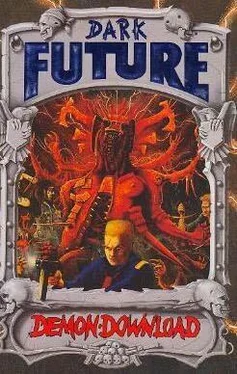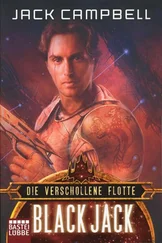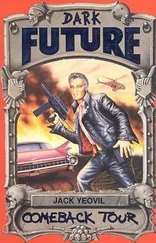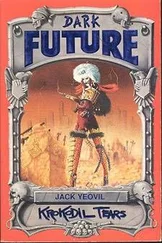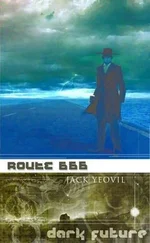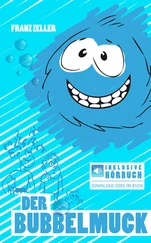"No, but isn't that the sort of thing bad people do? Father Daguerre told me about bad people."
Papa was relieved, but tears were coming out of the crinkles in his forehead.
"Why do the scrambled people want to phone you up and not say their names?"
"Hmmn? Chantal, What I do doesn't make me very popular with some people. They want to stop me. They think that making threats will stop me objecting to their investments."
"You mean people like GenTech."
Papa definitely wasn't pleased now.. "You've got good ears, Chantal. That may not make you happy when you grow up. Yes. Just now, I'm checking into a multinat called GenTech. They want to take over a chain of hospitals, and I don't think they should be allowed to."
"What have they done. Papa? Why shouldn't they be allowed to?"
"They've done bad things."
"What bad things?"
"Very bad tilings."
"You don't want to tell me, do you?"
Papa's forehead went crinkly again. "No, it's just…it's complicated…"
"Too complicated for someone with an IQ in the high l70s?"
"Chantal, you're very clever. Really, you're cleverer than I am. Cleverer than almost everyone else you know. But you're still a little girl. You'll have to wait for some things."
"Rudi said you found out that GenTech was cutting arms and legs off poor people in China and sewing them on to rich people over here. Is that true?"
Papa sighed. "There's no keeping anything from you, is there? That's one of the bad things I think they've been doing."
"That's all I wanted to know."
"But you knew it already."
"Yes. But I wanted to know it from you, Papa."
Thomas Juillerat hugged his daughter, and kissed the top of her head. She wondered why he was shaking.
"When you grow up, Chantal, what do you want to be? What do you want to do with your IQ and your big ears?" Chantal pushed him back and looked into his face, smiling proudly. She had never told anybody this. "I want to be a spy."
LAKE GENEVA, SWITZERLAND. 1987
"Chantal," said her reminder-box, "your mother is here."
She sat up in the boat, and directed it towards the landing. She had just been floating, looking up at the skies, and listening to The Samovar Seven on her walkman sunglasses. Her bedroom in Milan was plastered with glossies of Russian musickies clipped from Europ-teen magazine. Her parents disapproved of her musical tastes. That was one of the rare things they agreed on.
She was wearing flip-flops, tight knee-shorts and a loose T-shirt printed with Cyrillic lettering. The T-shirt had appealed to her for its bright colours, but she was disappointed that the words were gibberish. Real Sove fashions always made a statement, even if it was just a snip from the lyric.
She had spent most of her summer on the lake—Lac Leman, they called it on the opposite shore—feeling as if she was floating in the centre of the world. This was the border between Switzerland and the United European Community. Important people had been thronging the Villa Diodati, come to talk with her father. Franz-Josef Strauss, president of the UEC, had stayed for three days, walking on the lakeshore with Papa, and they had dissolved a tariff barrier with a handshake. Currently, there was a party of middle-aged men in identical suits—some Iranian, some Turkish, some American—from powerful interests inside the Pan-Islamic Congress. They were arguing about import quotas from the electronics works taking advantage of cheap labour in Greece and Albania.
Her shades buzzed with the asexual voice of Petya Tcherkassoff as he sang of his lost love, "The Girl in Gorki Park." Petya was the coolest of the snazz that year. His dour face—he looked something like a girlier version of Franz Kafka—gloomed out of the tri-d glitterbadge on her hip pocket. Europ-teen said he was recovering nicely from his latest suicide attempt, during which he had walked naked into the Siberian wastes after an open-air gig in Turinskaya Kultbaza. "It's not easy being loved," he had claimed, quoting the tide of his latest single.
With no one her own age around, she had been on her own, reading, listening to music, thinking, shadow-fighting in the gym. One of the bodyguards assigned to her father tried to show her some Tae Kwon Do, but he wasn't as well up as her sifu in Milan. After she had put him on the carpet once or twice, he lost interest in sparring with her. As an experiment, she had tried not praying for a week—even when Mlle Fournier took her to mass—and God hadn't punished her. But she had fallen back into old habits. Just because she wasn't delighted with either of her parents much of the time was no reason to turn her back on Jesus Christ.
She had scrolled through The Lives of the Saints several times, and finally finished Proust, but her main reading had been computer sciences, as usual. Mlle Fournier told her that the villa was where Mary Shelley had been inspired, by conversations with her husband, Percy Bysshe Shelley, and Lord Byron, to write Frankenstein; or: the Modem Prometheus, and she had read up on 1816 when the poets and their mistresses had passed a disagreeably showery summer in speculation. Byron's daughter, she was excited to learn, had later sponsored Charles Babbage, the inventor of the ancestor of today's computers. She wondered if the club-footed poet's ghost lumbered around the corridors. Probably not.
Just now, she was intrigued by the connections between higher mathematics, bio-engineering and the heuristic functions, and had read and reread Declan O'Shaughnessy SJ.'s Cybermind, Cybersoul, lying in her boat as the ideas shot around in her head like radio waves in deep space. The villa's terminals were mostly booked up by Papa's staff, even through the night, but she had accessed a datanet terminal in a neighbouring house—empty because the owners were summering in Greater Rhodesia—through a housekeeping program by linking her bedroom micro with the telephone, and was illegally— unethically, too—probing the extremes of the Swiss systems. She was already talking to hackers as far afield as Los Angeles, Moscow and Sakhalin, and feeling her way around the shadow world of the infonets.
The boat tied itself automatically at the jetty. Mlle Fournier was waiting there, with a party. Chantal pushed her musicshades up into her hair, which she had persuaded Papa to let her have cropped, and waved to her mother. It was time to go back to Milan.
"Chantal, whatever have you done to your hair?" asked Isabella Juillerat, the former Isabella di Modrone, kissing the air three inches away from her daughter's cheek. As usual, she was stunningly dressed, in a white sheath that curved from her chest to mid-thigh, one elbow-length glove with red talons, and a matching hat that circled her head like the rings of Saturn.
Chantal was told that she would grow up to look like her mother. But, this last year, she had gained about nine inches of height without developing any noticeable secondary sexual characteristics. In Milano, Marcello referred to her as "the scarecrow with no tits."
"Let me look at you," her mother said, arching a perfectly-plucked eyebrow. Her tan was even, but recently she had been developing visible orange patches on her neck and cleavage. That was, apparently, one of the side effects of the treatment. Father Daguerre had advised her to wait until Dr Zarathustra perfected his skincare system, but she had rushed into it as she rushed into everything else. She understood that GenTech's wizard had given her a rejuvenation on the house in the hope that she could exert some influence on her husband with regards to some multinat scheme.
"You have been to mass? Every week?"
“Twice a week, mama."
"Good. Your soul is safe, then. But your clothes! Why don't you wear the dresses I send you? You could wear only originals."
Читать дальше
